 Zusammenfassungen
Zusammenfassungen
 Here, then, is the central hypothesis of this book: All knowledge—past, present, and future—can be. derived from data by a single, universal learning algorithm.
Here, then, is the central hypothesis of this book: All knowledge—past, present, and future—can be. derived from data by a single, universal learning algorithm. Algorithms increasingly run our lives. They find books, movies, jobs, and dates for us, manage our investments, and discover new drugs. More and more, these algorithms work by learning from the trails of data we leave in our newly digital world. Like curious children, they observe us, imitate, and experiment. And in the world’s top research labs and universities, the race is on to invent the ultimate learning algorithm: one capable of discovering any knowledge from data, and doing anything we want, before we even ask.
Algorithms increasingly run our lives. They find books, movies, jobs, and dates for us, manage our investments, and discover new drugs. More and more, these algorithms work by learning from the trails of data we leave in our newly digital world. Like curious children, they observe us, imitate, and experiment. And in the world’s top research labs and universities, the race is on to invent the ultimate learning algorithm: one capable of discovering any knowledge from data, and doing anything we want, before we even ask.
Machine learning is the automation of discoverythe scientific method on steroidsthat enables intelligent robots and computers to program themselves. No field of science today is more important yet more shrouded in mystery. Pedro Domingos, one of the field’s leading lights, lifts the veil for the first time to give us a peek inside the learning machines that power Google, Amazon, and your smartphone. He charts a course through machine learning’s five major schools of thought, showing how they turn ideas from neuroscience, evolution, psychology, physics, and statistics into algorithms ready to serve you. Step by step, he assembles a blueprint for the future universal learnerthe Master Algorithmand discusses what it means for you, and for the future of business, science, and society.
If data-ism is today’s rising philosophy, this book will be ist bible. The quest for universal learning is one of the most significant, fascinating, and revolutionary intellectual developments of all time. A groundbreaking book, The Master Algorithm is the essential guide for anyone and everyone wanting to understand not just how the revolution will happen, but how to be at ist forefront.
 Bemerkungen zu diesem Buch
Bemerkungen zu diesem Buch
 Wie zentral die Technologie in Xi Jinpings
Strategie ist, zeigte sich schon Anfang 2018.
In seiner Neujahrsansprache erwähnte der
chinesische Präsident die künstliche Intelligenz
mit keinem Wort, er musste es nicht
mehr tun. Hinter ihm, in einem großen Bücherregal,
zwischen Mao Zedongs »Ausgewählten
Werken« und Marx’ »Kapital« entdeckten
aufmerksame Zuschauer eine verklausulierte
Botschaft, das Standardwerk
eines Portugiesen: »The Master Algorithm«
von Pedro Domingos.
Wie zentral die Technologie in Xi Jinpings
Strategie ist, zeigte sich schon Anfang 2018.
In seiner Neujahrsansprache erwähnte der
chinesische Präsident die künstliche Intelligenz
mit keinem Wort, er musste es nicht
mehr tun. Hinter ihm, in einem großen Bücherregal,
zwischen Mao Zedongs »Ausgewählten
Werken« und Marx’ »Kapital« entdeckten
aufmerksame Zuschauer eine verklausulierte
Botschaft, das Standardwerk
eines Portugiesen: »The Master Algorithm«
von Pedro Domingos. Kapitel
Kapitel 
 Dieses Buch erwähnt ...
Dieses Buch erwähnt ...
 Dieses Buch erwähnt vermutlich nicht ...
Dieses Buch erwähnt vermutlich nicht ... 
 Nicht erwähnte Begriffe | Apple, Bildung, datafication in education, facebook, Internet, Knapsack-Problem, Kognitivismus, LehrerIn, Metcalfe's law, Schule, Unterricht |
 Tagcloud
Tagcloud
 Zitate im Buch
Zitate im Buch
 Scientists make theories, and engineers make devices. Computer scientists make algorithms, which are both theories and devices.
Scientists make theories, and engineers make devices. Computer scientists make algorithms, which are both theories and devices. 6 Vorträge von Beat mit Bezug
6 Vorträge von Beat mit Bezug
- Berufsschule in einer digitalisierten Welt
Berufsbildungszentrum Goldau, 23.12.2015
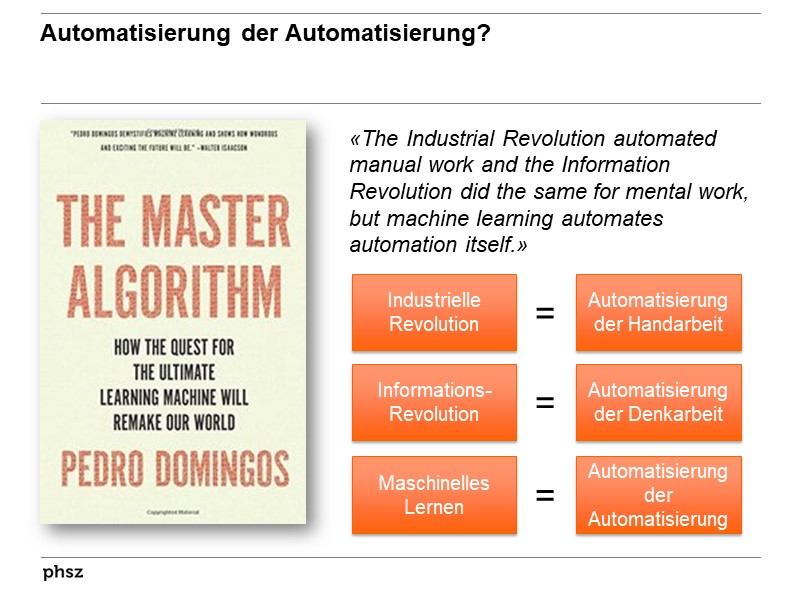
- BBZGPT
Berufsbildungszentrum Goldau, 17.08.2023

- Antworten auf Knopfdruck?
Mitarbeitendenklausur der PHSZ, 19.02.2024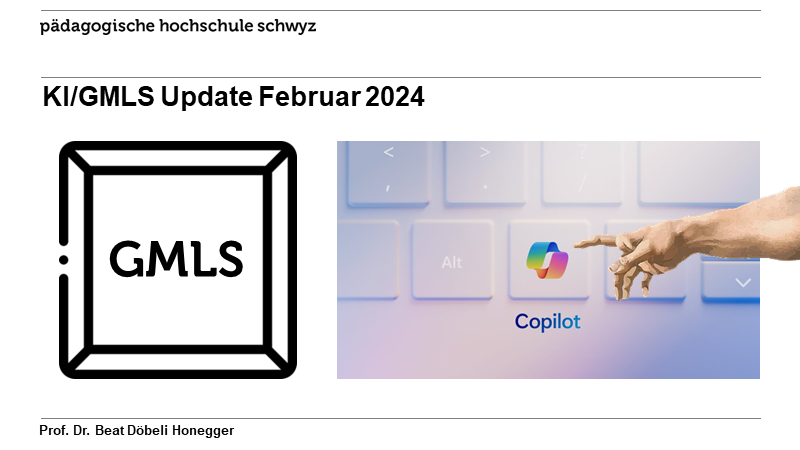
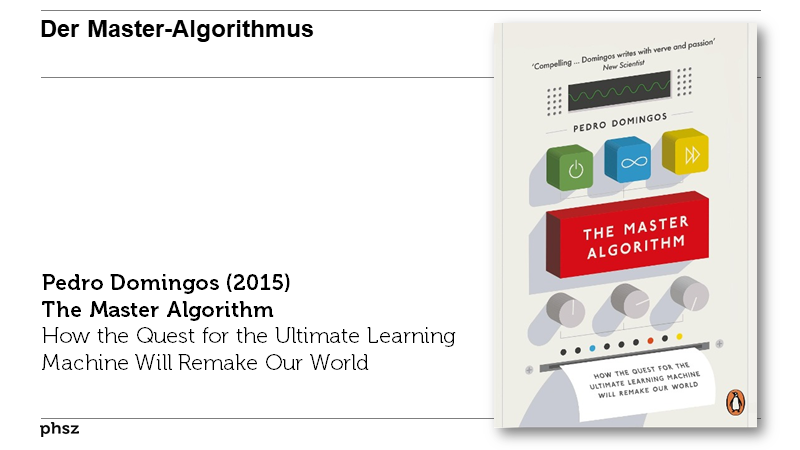
- Ist digitale Souveränität zu schaffen?
DACH-Seminar 2024 von EDK, KMK und BMBWF
Luzern, 27.05.2024
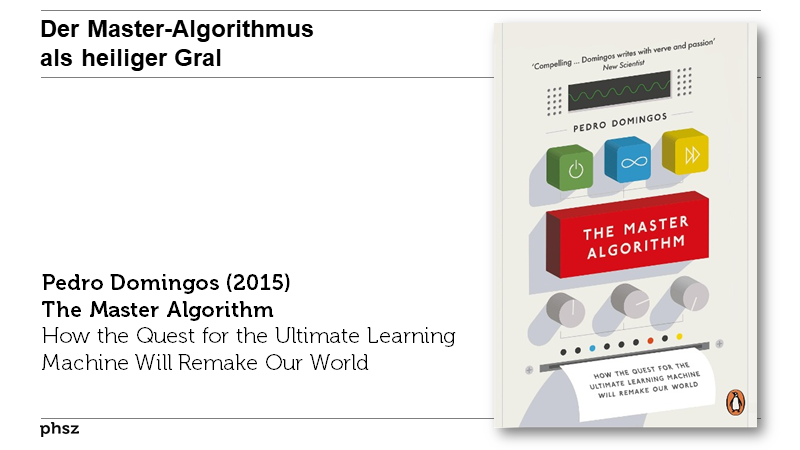
- Generative Machine-Learning-Systeme in der Bildung
VR- und GL-Retraite der Orell Füssli Gruppe
Hasliberg, 12.06.2024
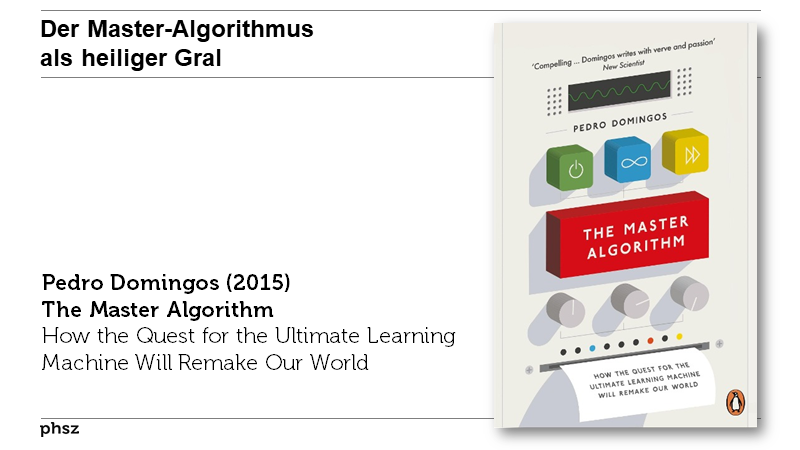
- Wenn Maschinen Modelle machen
Gedanken zu Generationen- und Sprachmodellen
Edubase Future Night 2025, Careum Zürich, 22.01.2025
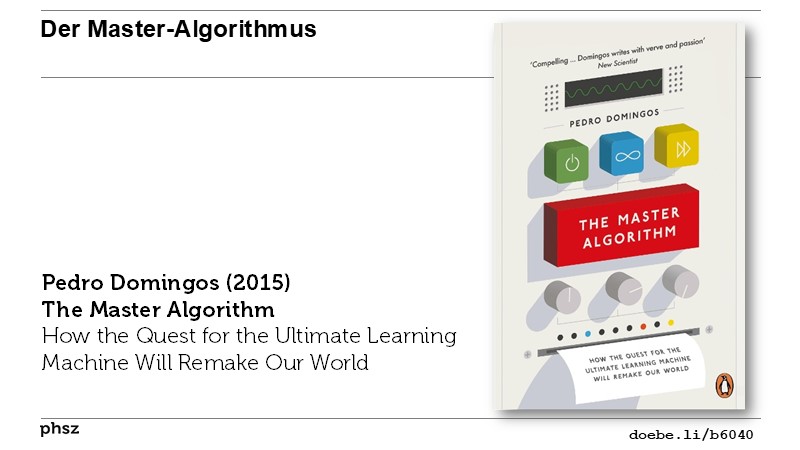
 Zitationsgraph
Zitationsgraph
 Zitationsgraph (Beta-Test mit vis.js)
Zitationsgraph (Beta-Test mit vis.js)
 Zeitleiste
Zeitleiste
 23 Erwähnungen
23 Erwähnungen 
- Neural Network Construction Practices in Elementary School (Gilad Shamir, Ilya Levin)


- Mehr als 0 und 1 - Schule in einer digitalisierten Welt (Beat Döbeli Honegger) (2016)


- There is a blind spot in AI research (Kate Crawford, Ryan Calo) (2016)


- Algorithmuskulturen - Über die rechnerische Konstruktion der Wirklichkeit (Robert Seyfert, Jonathan Roberge) (2017)


- Artificial Intuition - The Improbable Deep Learning Revolution (Carlos E. Perez) (2017)


- Kybernetik, Kapitalismus, Revolutionen - Emanzipatorische Perspektiven im technologischen Wandel (Paul Buckermann, Anne Koppenburger, Simon Schaupp) (2017)

- Horizonte 113 (2017)


- The Book of Why - The New Science of Cause and Effect (Judea Pearl, Dana Mackenzie) (2018)


- If...Then - Algorithmic Power and Politics (Taina Bucher) (2018)

- 4.0 oder Die Lücke die der Rechner lässt (Dirk Baecker) (2018)

- Hello World 5/2018 - The Magazine for Computing & Digital Making Educators (2018)


- Hello World - How to Be Human in the Age of the Machine (Hannah Fry) (2018)

- Das Zeitalter des Überwachungskapitalismus (Shoshana Zuboff) (2018)

- Wir zählen nicht nur bis eins - Künstliche Intelligenz im Kontext (Dirk Baecker) (2018)


- The Democratization of Artificial Intelligence - Net Politics in the Era of Learning Algorithms (Andreas Sudmann) (2019)


- Handbook of Research on Integrating Computer Science and Computational Thinking in K-12 Education (Jared Keengwe, Patrick Wachira) (2020)

- Engines of Order - A Mechanology of Algorithmic Techniques (Bernhard Rieder) (2020)


- Künstliche Intelligenz und der Sinn des Lebens - Ein Essay (Richard David Precht) (2020)

- God, Human, Animal, Machine - Technology, Metaphor, and the Search for Meaning (Meghan O'Gieblyn) (2021)
- Prediction Machines - The Simple Economics of Artificial Intelligence - Updated Edition (Ajay Agrawal, Joshua Gans, Avi Goldfarb) (2022)

- Die neue Weltmacht - Wie ChatGPT und Co. unser Leben verändern (Titelthema Spiegel 10/2023) (2023)

- Wettlauf der Gehirne (Markus Becker, Patrick Beuth, Alexander Demling, Christoph Giesen, Anton Rainer, Marcel Rosenbach, Bernhard Zand) (2023)

- Wettlauf der Gehirne (Markus Becker, Patrick Beuth, Alexander Demling, Christoph Giesen, Anton Rainer, Marcel Rosenbach, Bernhard Zand) (2023)
- Education for the Age of AI (Charles Fadel, Alexis Black, Robbie Taylor, Janet Slesinski, Katie Dunn) (2024)

- Handbuch Lernen mit digitalen Medien (3. Auflage) - Wege der Transformation (Gerold Brägger, Hans-Günter Rolff) (2025)
- Generative Machine-Learning-Systeme - Die nächste Herausforderung des digitalen Leitmedienwechsels (Beat Döbeli Honegger) (2025)


- Generative Machine-Learning-Systeme - Die nächste Herausforderung des digitalen Leitmedienwechsels (Beat Döbeli Honegger) (2025)
 Co-zitierte Bücher
Co-zitierte Bücher
 Volltext dieses Dokuments
Volltext dieses Dokuments
 | The Machine-Learning Revolution: Artikel als Volltext ( : :  , 1151 kByte) , 1151 kByte) |
 | The Master Algorithm: Artikel als Volltext ( : :  , 1762 kByte) , 1762 kByte) |
 | The Master Algorithm: Gesamtes Buch als Volltext ( : 3742 kByte) : 3742 kByte) |
 | The Master Algorithm: Gesamtes Buch als Volltext ( : :  , 18047 kByte) , 18047 kByte) |
 Standorte
Standorte 
 Bibliographisches
Bibliographisches 
 Beat und dieses Buch
Beat und dieses Buch
Beat hat dieses Buch während seiner Zeit am Institut für Medien und Schule (IMS) ins Biblionetz aufgenommen. Beat besitzt kein physisches, aber ein digitales Exemplar. (das er aber aus Urheberrechtsgründen nicht einfach weitergeben darf). Aufgrund der vielen Verknüpfungen im Biblionetz scheint er sich intensiver damit befasst zu haben. Beat hat dieses Buch auch schon in Vorträgen erwähnt.








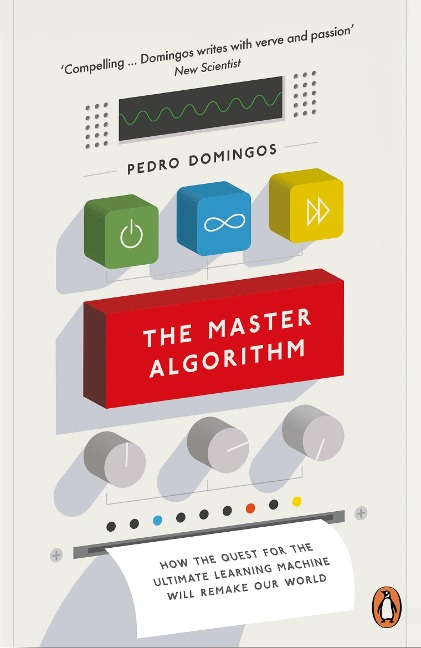
 Algorithmus
Algorithmus amazon
amazon big data
big data Cholera
Cholera Computer
Computer datafication
datafication Daten
Daten Denken
Denken Digitalisierung
Digitalisierung DNS
DNS Evolution
Evolution Fuchs-Denken
Fuchs-Denken Gehirn
Gehirn Gesellschaft
Gesellschaft Gesichtserkennung
Gesichtserkennung Google
Google Igel-Denken
Igel-Denken instant gratification
instant gratification Künstliche Intelligenz (KI / AI)
Künstliche Intelligenz (KI / AI) Lernen
Lernen machine learning
machine learning Neurologie
Neurologie Neuron
Neuron Neuronales Netz
Neuronales Netz Perceptron
Perceptron Philosophie
Philosophie Predictive Analytics
Predictive Analytics Programmieren
Programmieren Psychologie
Psychologie Roboter
Roboter Schach
Schach Statistik
Statistik Suchmaschine
Suchmaschine Wissenschaft
Wissenschaft Zukunft
Zukunft




















 Biblionetz-History
Biblionetz-History